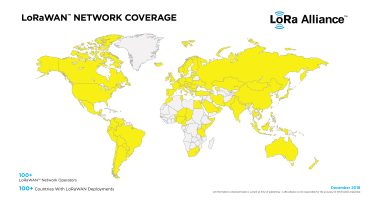The offer of more efficient, cost-saving, almost failure-free street lighting, all thanks to the favourable conjunction of new LED sources and the Internet of Things has been too much for many cash-strapped local authorities to resist. Happy to be early adopters of an essentially unproven technology, the UK has spent millions of pounds investing in some or all of the potential savings. Many of us have queried the long-term quality of the LED hardware that’s been on offer but few, I suspect, expected systems to fall over with the demise of one of the major players in the sector.
Harvard Technology called in administrators at the end of 2018, citing difficult trading conditions and cash flow pressures. With Grant Thornton currently in charge of a number of street lighting installations, reports are heard of street lighting being left on 24 hours a day – the only alternative being to have the lighting permanently switched off, pending sale of the business or its assets.
So why are local authorities faced with this dilemma? It comes down to the pioneering nature of the business model in the early days of smart controls. With nothing to refer to, every smart controls package – both hardware and software – was unique to the company offering it. Every system was standalone. And while it’s an interesting marketing gambit to claim that such insular systems are easier to protect from hacking, there is little protection when the operators disappear, leaving those clients with some serious, potentially damaging expensive, decisions to make.
Early adopters are important to us. Without them, nothing new would ever be seen under the sun. The risks, thought, are high. Pioneering companies cannot offer failsafe guarantees as there is unlikely to be anyone else around to pick up the reins if they fall off the wagon. And for the local authority early adopters, there are some tough decisions to make.
But it no longer has to be like this.
The smart controls sector has matured well and we now see a number of open and truly interoperable platforms[JF1] on offer. These systems offer all the same benefits as the bespoke, but proprietary, systems that were represented by Harvard, but with the added benefit that any other company using the open platform can take over a system in the event of the originating company failing.
Local authorities = and private developers, come to that – will be adding clauses into their contracts asking for confirmation that systems being offered are not locked to a single company[JF2] , but are essentially agnostic in nature. Clients may prefer to take on the management of their own installations, maintaining an arms-length relationship with the suppliers.
We can feel sympathy for those organisations caught up in the Harvard debacle, but it’s important that the future of smart controls isn’t lost in any ensuring panic. There are ways through this; companies are already addressing the situation and preparing what they hope will be acceptable terms going forward to new contracts.
Thanks for due to John Fox, MD of Lucy Zodion for this insights.
This article was originally posted in The Light Review, here: https://www.thelightreviewonline.com/the-future-of-smart-city-street-lighting-after-harvard%EF%BB%BF/



